Can all types of fire extinguishers be recharged?
Frequently Asked Questions
Can all types of fire extinguishers be recharged?
No, not all types of fire extinguishers can be recharged. For example, disposable fire extinguishers are not designed to be recharged and should be disposed of after use.
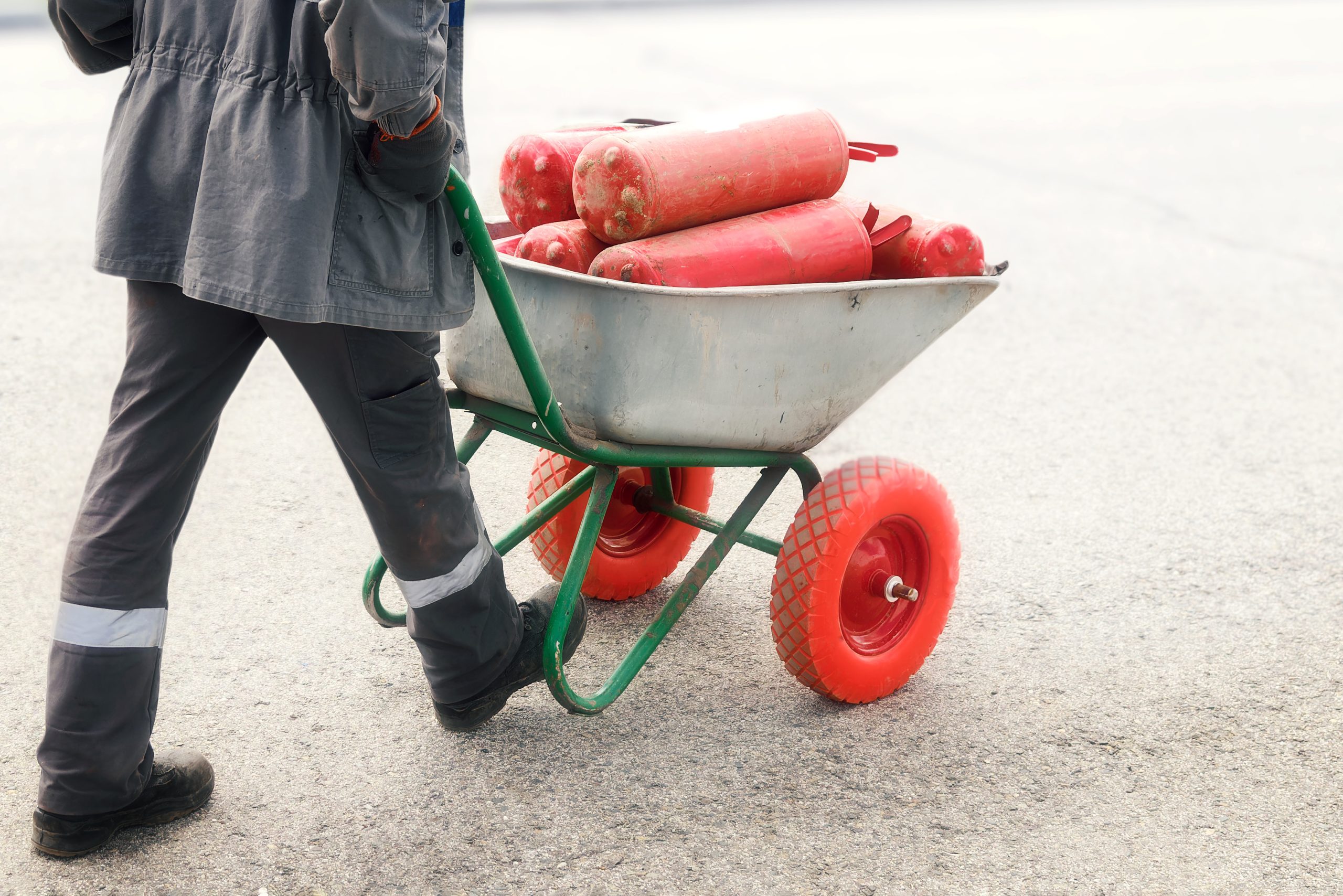
Related FAQs
The effectiveness of CO2 compared to clean agents depends on the specific application and safety requirements. CO2 is highly effective at extinguishing fires where electronic and electrical risk is low, mainly because it leaves no residue and reduces the oxygen level needed to sustain a fire. However, CO2 is not typically considered better than clean agents in environments where human safety is a concern. Clean agents are specifically formulated to be safe for use in occupied spaces and do not pose the asphyxiation risk that CO2 does. Clean agents such as FM-200, Novec 1230, or FE-13 are preferred for spaces with valuable electronics or critical operations because they combine effectiveness with a high safety profile for equipment and personnel.
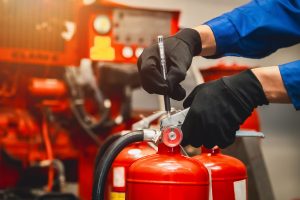
As of now, FM-200 is not being phased out globally but faces scrutiny due to its global warming potential (GWP). While FM-200 does not deplete the ozone layer, it has a high GWP, which has led to discussions about its environmental impact. Regulatory environments concerning substances with high GWP are evolving, and users of FM-200 are encouraged to keep informed about future regulations that might affect its use. Alternative agents with lower GWP, such as Novec 1230 and certain inert gases, are being considered in new installations where environmental impact is a concern. Despite this, FM-200 remains a popular choice due to its effectiveness, safety profile, and the fact that it leaves no residue, making it suitable for protecting high-value assets and electronics.

The main difference between clean agents and inert gases in fire suppression involves their composition and fire extinguishing method. Clean agents like FM-200, Novec 1230, and FE-13 are chemical agents that extinguish a fire primarily by interrupting the chemical reaction of the fire. These agents are generally stored as liquids and vaporize when discharged. In contrast, inert gases such as Inergen, Argonite, and nitrogen work by reducing the oxygen concentration around the fire to below the level that supports combustion. Inert gases are stored as compressed and remain in gaseous form when discharged. Both types are designed to minimize damage to equipment and are safe for use in occupied spaces. Still, clean agents offer a faster discharge and quicker cleanup than inert gases, which might require more time to ventilate the affected area after discharge.

Carbon dioxide (CO2) is often used in fire suppression systems, particularly in situations where a quick, efficient extinguishing method is needed without concern for residue. However, CO2 does not meet all the criteria to be classified strictly as a “clean agent” by standards such as those set by the National Fire Protection Association (NFPA). While CO2 is effective in suppressing fires by reducing the oxygen available to fuel a fire and by cooling the fire, it can pose serious risks to human safety if deployed in occupied spaces. Unlike other clean agents that are designed to be safe for occupied environments, CO2 can cause asphyxiation in high concentrations, making it unsuitable for areas where people cannot quickly evacuate. Therefore, CO2 is typically used in unoccupied spaces or where rapid evacuation is possible.
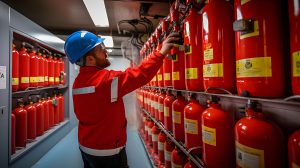
Clean agent fire suppression systems typically use gases that are electrically non-conductive, leave no residue upon evaporation, and are safe for humans. Common gases used in these systems include FM-200 (heptafluoropropane), FE-13 (trifluoromethane), Novec 1230 (fluoroketone), and Inergen (a blend of nitrogen, argon, and carbon dioxide). Each of these agents has unique properties suited to different fire suppression needs, but all share the characteristics that define clean agents: they are clean, safe, and effective at suppressing various fires without damaging sensitive equipment or the environment. These gases are typically selected based on the specific requirements of the space to be protected, including the fire risk, the value of the assets, and the occupancy characteristics.
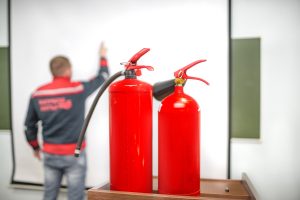
Yes, FM-200 is considered a clean agent in fire suppression systems. FM-200, chemically known as heptafluoropropane (HFC-227ea), is widely recognized for its effectiveness in extinguishing fires quickly and its environmental profile, which includes zero ozone depletion potential. The primary advantage of using FM-200 as a clean agent lies in its ability to suppress fires without leaving behind residue. This property makes it an ideal choice for protecting sensitive equipment and environments such as data centers, telecommunications facilities, and control rooms where electronic equipment is prevalent and cannot be damaged by water from traditional sprinkler systems. Additionally, FM-200 is safe for human exposure in the concentration used for fire suppression. It extinguishes fires primarily by absorbing heat, making it highly effective against most types of fires, including electrical and flammable liquids. FM-200 systems are designed to discharge within 10 seconds and reach extinguishing levels quickly, minimizing damage and downtime.
Legally, the responsibility for fire safety typically lies with the property owner or the occupier of a building, such as a business or organization operating within that property. This responsibility includes ensuring that the building complies with all applicable fire safety laws, which involves conducting regular fire risk assessments, implementing appropriate fire safety measures, and maintaining all safety equipment in working order.
In buildings with multiple tenants, such as commercial complexes or residential blocks, the responsibility may be shared between the landlord and the tenants. The landlord is generally responsible for common areas and the overall building infrastructure, including fire escapes and alarm systems. Tenants, on the other hand, are responsible for managing fire risks within their leased spaces, such as ensuring that their activities
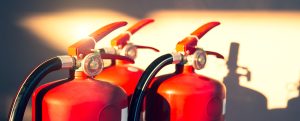
Fire services are pivotal in ensuring public safety by conducting inspections rather than audits. These inspections verify that buildings and facilities comply with local fire safety codes and regulations. During an inspection, fire service personnel check for proper installation and maintenance of fire suppression systems, adequacy of fire exits, functionality of fire alarms, and proper storage of flammable materials, among other things.
The primary focus of these inspections is to ensure adherence to safety standards that prevent fire incidents and facilitate safe evacuations when necessary. Unlike audits, which are comprehensive and evaluative, inspections are more about compliance and enforcement. They are generally less detailed but are crucial for immediate safety checks. Fire departments may issue violations and mandate immediate corrective actions if non-compliance with fire safety standards is found. These actions are critical in preventing potential fire incidents and ensuring that safety measures are not only in place but are also effective.
In some cases, fire departments may conduct more detailed reviews or collaborate with other safety experts for comprehensive evaluations. Still, their primary role remains focused on inspection and enforcement rather than detailed audits.
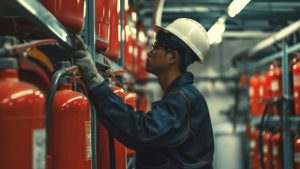
The audit process is a meticulous sequence that ensures thorough scrutiny and evaluation of an organization’s adherence to regulations and standards. It starts with planning, which involves setting the objectives, scope, and timing of the audit, and gathering preliminary data. This step is crucial as it outlines the framework for the entire audit, helping auditors prepare effectively. The initial review follows, where auditors assess existing controls, procedures, and documentation to identify areas of risk and focus for detailed examination. During the fieldwork stage, auditors conduct in-depth assessments through observations, interviews, and testing. This hands-on phase is vital for gathering evidence and insights on operational practices and compliance with policies and standards. After fieldwork comes the analysis, where the collected data is meticulously evaluated to identify discrepancies, inefficiencies, or non-compliance issues. This step involves critically examining the information to understand the implications of findings and form the basis for the audit report.
In the reporting phase, auditors compile their findings, conclusions, and recommendations into a structured report. This document is crucial as it communicates the audit results to management and relevant stakeholders, providing them with insights into areas that require attention or improvement. Follow-up activities are then conducted to ensure that corrective actions are implemented as recommended. This step is essential for verifying that the issues identified during the audit have been effectively addressed.
Lastly, documentation is maintained throughout the audit process. This includes keeping detailed records of plans, evidence, reports, and follow-up actions. Proper documentation is essential not only for accountability and transparency but also serves as a historical record for future audits. Collectively, these seven steps form a comprehensive approach to auditing, ensuring that organizations maintain compliance and enhance their operational standards effectively.
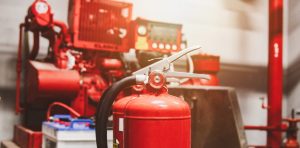
EDMONTON AREA BUSINESS OWNERS TRUST ADVANCED FIRE PROTECTION SERVICES EVERY DAY.
SERVICE AVAILABLE IN NORTHERN ALBERTA, EDMONTON SURROUNDING AREA, & RED DEER AREA
COMMERCIAL FIRE PROTECTION SERVICES
Edmonton’s Best Provider for your fire safety service needs. Protect your business from going up in flames. If you need installation, monitoring, or recertifications, call us today!
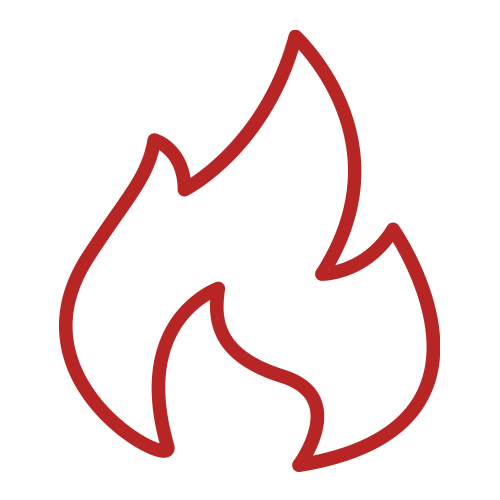
Fire Suppression Systems
Commercial Kitchens, Paint Booths, Mobile Food Trucks, and More

Sprinkler Systems
Full System Inspection, Testing, and Repairs

Fire Alarm Systems
ULC Certified for 24/7 Fire Alarm Monitoring, Maintenance, and Testing

Fire Extinguishers
Equipment Maintenance, Installation, and Sales

DSC Security System
Installation & 24/7 Monitoring

Emergency Lighting Systems
Maintenance, Installation, and Sales
